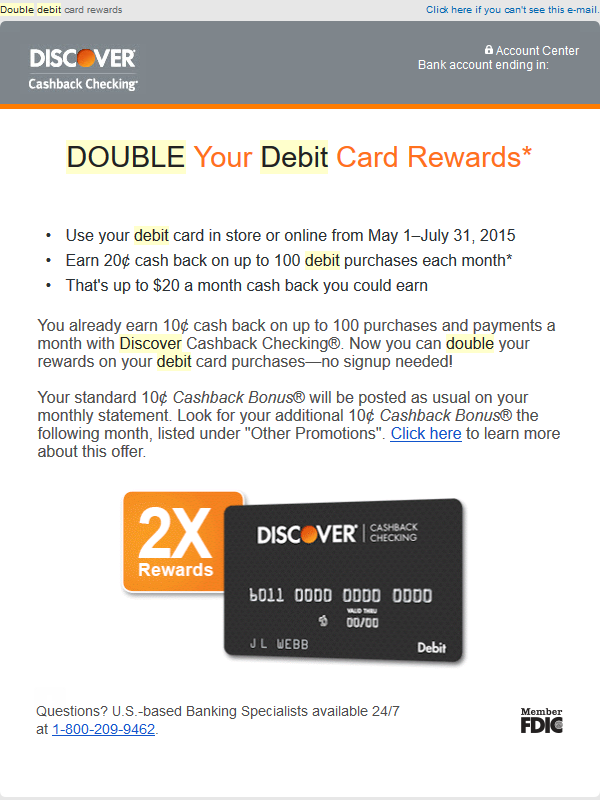
Until now, I have not actually discussed the activities on my Amazon.com account that was blacklisted by Amazon.com, Inc., and for which they refuse to remit my Amazon gift card balance of $451.20.
Amazon is a corporation which institutes the following statements as part of their canned emails:
“Due to the proprietary nature of our business, we’re unable to discuss with Mr. Thripp, and the decision to close his account is a final one.”
“I realize you’re upset, and I regret we’ve been unable to address your concerns to your satisfaction. However, we’ll not be able to offer any additional insight or action on these matters, and any further inquiries on this matter won’t receive a response.”
Note that the “proprietary nature” quote is all the insight they provide, which is absolutely no insight. An attorney representing Amazon.com, Inc. (Vanessa Soriano Power of Stoel Rives, LLP) has implied in an email to me on 10/27/2015 that Amazon will provide no explanation unless compelled to via subpoena.
It is not fair for me or any other customer to have to reveal information nor speculate about (fish for) reasons that “may” have been banned for.
However, I am admittedly dealing with a small amount here—even with my small claims fees, the total amount is only $650. Additionally, I desire to raise awareness about Amazon’s practices. Relating to my case, there is a highly seductive detail that may aid in this.
The prime reason for my blacklisting, I suspect, is purchasing 300 small Amazon gift cards using my Discover debit card, ranging from $0.50 to $0.74, and applying them to my account.
Why would I do this? A very time-consuming way to make (or technically, save) $60.00:

I bought 100 Amazon gift cards per month during three months: May, June, and July 2015. They were all for amounts below a dollar each, all using my Discover Cashback Checking debit card which is in my name with my billing address, and were all applied by me to my Amazon customer account.
While this does not add up to $451.20, other gift cards came from other sources, such as me purchasing them at Sears, Kmart, or OfficeMax (in $25, $50, or $100 denominations) using my BankAmericard Cash Rewards credit card when it was offering 10% or 15% back for purchases at these stores.
Of course, the small transactions are costly in merchant processing fees to Amazon. I wouldn’t be surprised if I cost them $50 in fees. However, such behavior is not illegal, and no Conditions of Use agreement can allow a corporation to steal such a gift card balance, even though it was intentionally acquired by the customer in a manner that was costly to the corporation.
Also, a mitigating factor is that I purchased the Amazon gift cards directly from Amazon, for which Amazon incurs lower fees overall. Gift cards purchased through GiftCardMall racks at retailers involve additional fees for merchants. Gift cards are something that almost all corporations “lose” money on—but they allow them to take an interest-free loan, and may not even be redeemed by the customer. Seizing gift card balances is something that makes gift cards infinitely more profitable! It is an activity that is manifestly illegal and appears exclusive to Amazon.com, Inc., eBay/PayPal, and Starbucks, though Amazon is the most brazen about it.
If anyone should have blacklisted me, it is Discover Bank, not Amazon.com, Inc. However, Discover is a corporation that is much more tolerant, courteous and, to my knowledge, ethical, than Amazon.com, Inc. Also, I have probably made Discover Card plenty of money on interchange fees, though I am financially literate and never incur finance charges. 🙂
THE AMUSING IRONY: AMAZON CAN DISH IT OUT TO DISCOVER, BUT CAN’T TAKE IT
The entertaining and quite hilarious irony is that Amazon.com, Inc. has defrauded Discover, which has been revealed on record by a former employee, including disclosed emails indicating that senior executives including CEO Jeff Bezos himself were aware of the fraud!
Letter to Amazon.com, Inc. and the Attorney General of Washington, dated 10/13/2014
By Kivin Varghese, former Product Manager of New Kindle Ad Products for Amazon.com, Inc. [Mirror]
DISCOVER CARD PROMOTION
Shortly after the successful launch of the ad platform in September 2012, we ran into an issue with one of our large launch partners, Discover Card. In addition to paying $1.2MM to be part of the launch, we ran a promotion where they paid an extra $500,000 that was intended to encourage Kindle owners with a Discover card, to switch their default 1-click card to Discover (ahead of the holiday shopping season).
The promotion was structured in a way where anyone with a Kindle, who used their Discover card to buy a digital good (e.g. mp3 or movie), would get a $10 Amazon Gift Card. The reason the good had to be digital is because to buy a digital good you need to use your 1-click default card, and Discover’s primary objective for this promotion was to get users who had a Discover card, to make it their 1-click default so Discover could be the card of choice for holiday shopping over the course of the fourth quarter. That was the only way Discover could justify spending $10 when someone ordered a $1 .mp3 music file.
The finance team and the ad execution team (who reported to my manager via a different Product Manager) put together a forecast for Discover that showed we expected the $500K to last for the full 60 days of the promotion, and it had a wide ranging buffer, so we would monitor it weekly. I was not allowed to see the data that went into the forecast – only the finance team putting together the forecast was allowed to see that data – I and others were just provided a range.
About 10 days into the promotion, the Ad Execution team found that over $300,000 of the $500,000 allocated for the promotion had been spent. I had our development team look into the data to find out how this could happen – Was it fraud? Was it a bug?
What we found was that there were tens of thousands of Kindle e-ink owners, the vast majority who hadn’t even seen the promotion details (as customers had to click on the ad to see the details), were qualifying for the $10 Gift card because every day, there are thousands of customers who own a Kindle and already have Discover set as their 1-click default card, that buy a digital good on Amazon in the ordinary course of their activity. As soon as we found this out, I sent out a 7-step solution that I recommended we implement to fix the issue, which involved being transparent with Discover about the issue and refunding a significant portion of the promotional funds that went to subsidized behavior. Munira disagreed with my approach, directing me to spin this as ‘good news, that the promotion is tracking ahead of plan’ and urged me to try to get more budget from Discover. Meanwhile the promotion continued to run and within a few more days we had gone over the $500,000 budget.
Our finance and ad execution team had missed the key fact when doing the forecast – the forecast should have shown that there was a 100% certainty that the promotion as structured, would go through the $500,000 budget within a couple of weeks given everyday activity. This was clear, the data was available during the forecast, and it was missed.
So in other words, Discover was essentially paying $10 to tens of thousands of users who had no idea the promotion was going on, and were just subsidizing existing behavior – Discover was paying $10 mostly to consumers that already had Discover set as their 1-click default and were unaware of any Kindle promotion. That was not Discover’s intention, nor was it Amazon’s when we ran the promotion. But it was our mistake to rectify.
Mr. Varghese includes many email communications indicating the fraud and cover-up resulting in Discover being defrauded of at least $500,000 or perhaps even more. Being that Amazon maintains a monopoly on tracking information and that Discover has spent over $30 million on marketing with them, as of 2012, it is likely that Discover has been defrauded for far more, given that we have empirically established that Amazon is amoral and corrupt. I have not bothered to include the emails here, but view the following 29-page PDF file for a stunning indictment of Amazon’s criminal behavior (click “Mirror” to download it more easily from my server):
Letter to Amazon.com, Inc. and the Attorney General of Washington, dated 10/13/2014
By Kivin Varghese, former Product Manager of New Kindle Ad Products for Amazon.com, Inc. [Mirror]

CONCLUSION: Amazon can dish it out to Discover, but they can’t take it.
Amazon’s positive public image deserves to be eviscerated. It’s amazing it’s lasted this long.
JEFF BLACKBURN, THE SVP OF THE GROUP AND DIRECT REPORT OF JEFF BEZOS, SEEMS TO ENCOURAGE THE TEAM TO WITHHOLD SALES DATA FROM ADVERTISERS IF THAT’S WHAT NEEDS TO BE DONE TO MAXIMIZE FREE CASH FLOW AND MAKE MORE MONEY. THIS FROM A TRANSCRIPT OF A MEETING I ATTENDED.
Jeff Blackburn starts out with what seems to be the right approach when he asks “Are we hiding something? This doesn’t feel right”. But then goes on to tell the team:
“At the end of the day, you should do what you need to do to maximize free cash flow for the device. Do what you need to do to make more money. I don’t know if exposing that we have 100 orders gets us there [obviously exposing that we only got 100 orders on a major advertising media buy is not a good result], but you can decide what to do to maximize FCF [Free Cash Flow]”
